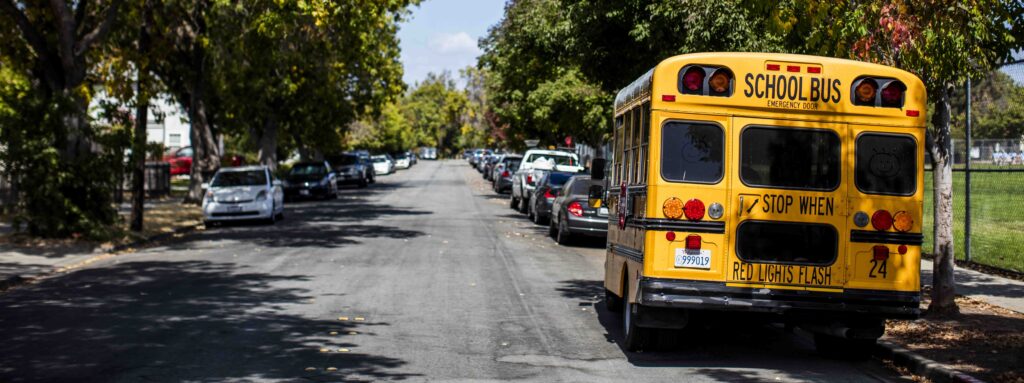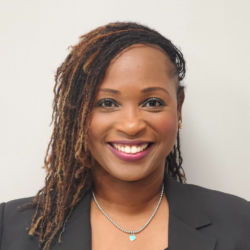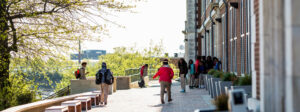In The Opportunity Myth, we partnered with five anonymous school systems across the country to understand how students were experiencing the school day: what they were doing in school and how they felt about it. Buffalo Public Schools (BPS) has publicly named that they were one of those school systems.
We sat down with Dr. Kriner Cash, the superintendent of BPS since 2015, to talk about what the district is doing to improve experiences for all Buffalo students.
Tell us a little bit about Buffalo Public Schools. Who are your students and families? What are the big strengths and challenges of your district?
We’re the second largest school district in the state of New York, and we have the most linguistically diverse student population in the state. About half of our students are African American, 20 percent are white, 20 percent are Latino. Many are new Americans. About 90 percent of our students come from low-income families.
If you ask me about bright spots, I’d say it’s all bright. We don’t use excuses. In Buffalo, we’re delighted to assist our students and families to achieve no matter what circumstances they bring to school. We want school to be the place where they can realize their dreams.
In the past, there was a mindset that our students probably couldn’t achieve at a very high level. Everything had been ratcheted down over time—expectations, the quality of experiences for some students versus other students, and on and on. We're starting to turn the ship in a direction where we can actually deliver on the recommendations that came out of The Opportunity Myth. We've already started to adopt new instructional priorities for English language arts and math in particular. We already have some decent materials, and we're continuing to train teachers in-depth on how to deliver those materials and hold students to those high expectations. We’re working to change our staff’s mindsets—teachers and everyone—around what these children can achieve.
So, we're in route. We're not done. I'm very encouraged about where we'll be next year, at the end of this year, and each year thereafter.
Why did you want Buffalo to participate in the research for The Opportunity Myth?
I like to be out front on innovation, but sometimes you can convince more people about what you're doing and get them to join you when they see what you're trying to improve from. That’s why I wanted to be part of The Opportunity Myth. I wanted to see where we were.
As you know, all the school systems in the report are anonymous. But you were adamant from the start that you felt it was important to name Buffalo publicly. Why?
You can't improve something if you don't first acknowledge what needs to be improved. We don't put our head in the sand when we need to grow. Everyone knew that Buffalo Public Schools was considered a failing school district. What I found when I first came here was everybody was defensive about it, as opposed to looking at data and saying, “Here's where we do some really good things, and here's what we need to improve.”
I don't see anybody who gets off the hook in this report. Except maybe the students. Everybody needs to up their game. But if I have to defer to anybody, I'll defer to students. We’re going to use the data in the study to improve our district, on behalf of children.
Did the data surprise you?
No. When our Chief Academic Officer does her classroom walk-throughs, she's often identifying the same things that the report found. When she goes into our classrooms, they're just not on grade level. The assignments are two, three, sometimes four grade levels off.
We have new state standards, among the highest in the country, and the teachers largely agree with them. But many don't really believe that their kids can achieve them. There’s an expectations gap: “I support the standards, but I don't expect necessarily that my students can achieve them, given where they are.” I don't think it’s malicious. I think the intent is to be helpful. Many teachers are saying, “I don't want to press my students too far beyond where they are.” There’s that mindset.
Eighty-six percent of our teaching staff are Caucasian. They often get on the highway and drive out to the suburbs after school. Our students are poor, they’re students of color, and they live in the city, in very segregated neighborhoods. Even if you have good intentions—”I love Buffalo Public Schools, I love being a teacher and wouldn't want to teach anywhere else”—there still is this low expectation mindset that tends to creep and seep into these lessons. That's what we're working hard to change.
What are you doing to address those things?
We clearly have “irreplaceable” teachers in this district. We’ve fought to keep those teachers—to not lose them to higher performing schools. Now, what we need to do is grow the number of teachers at that level: who are holding high expectations, and offering grade-appropriate assignments, engagement with rich and rigorous content, and strong instruction where the students are doing the heavy lifting. When I go and observe in classrooms, I'm now looking for those four things, those resources you name in the report.
We’re going to live in this space with all our staff. It’s not just on teachers. We're doing a lot to train principals and assistant principals in this work as well, because I want them to be instructional leaders who are clear about what they expect.
And we’re doing a system-wide equity audit this year. We will look school by school, grade by grade, subject by subject, at the number of honors courses, AP courses, IB courses. When are students getting Algebra I or Earth Science? And more: music, arts, technology. No stone will be unturned. I want every kid in every school of Buffalo Public to have the same opportunities to succeed.
One thing we’ve seen already is inequity with regard to AP access. This year we're increasing our number of AP courses, including through virtual courses. We've aligned high school schedules so that if students want to take an AP psychology course at one of the schools where we already have it, they can sign up and take it, even if they're at a different school that doesn't have that course yet. One school that had zero AP courses last year is now going to have five. That’s a school that has basically never had that opportunity before. So, we're starting to provide more opportunity to more places.
Lastly, but really important, I’m doing more to engage with students and parents directly.
What does that look like?
Well, I'm meeting with parents today. I meet with parents monthly, but this is my first meeting of the year with what we call our Parent Congress, where I’ll be talking about routinely getting information from them about what they want and expect from schools and for their children. We have parent centers across the city where we meet with parents. These are open all the time and parents come in to access a whole range of information.
With students, I meet with them in different schools and in different places in the city. I met four times last year with the students in what's called our Students’ Superintendent Town Hall. We bus students to these meetings to hear from them about their experiences in school—everything from classroom experiences to the kind of food that we serve to transportation services. I’ve been doing some of this already, but we’re going to double down.
When you look at the data in this report—and there’s a lot of work to be done—what gives you hope?
We saw that for students who started the year off furthest behind, if they got the four resources, they grew exponentially. That's what gives me hope. Those are my students here in Buffalo. We’ve never looked at instruction like this before. We’ve never done what we’re doing now. That's why I'm encouraged. We're going to get there.
Given, as you said, that nobody is off the hook here, what advice would you have for other superintendents who want to do the type of work that Buffalo is doing?
Don’t run from these findings. Don’t be dismissive or defensive. Dig in and get more information, more systematically from your students directly. Keep meeting with students and their families. Ask them, “What are your aspirations? How are we doing with helping you toward those aspirations? What are your classroom experiences like?”
It’s such hard work. I say let's get in and challenge ourselves to upend the myth. The report provides a framework for digging into this work. In Buffalo, we're all in. We're gonna be relentless.





